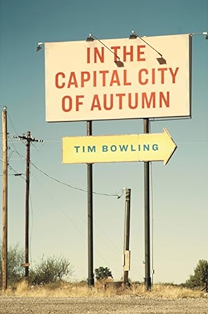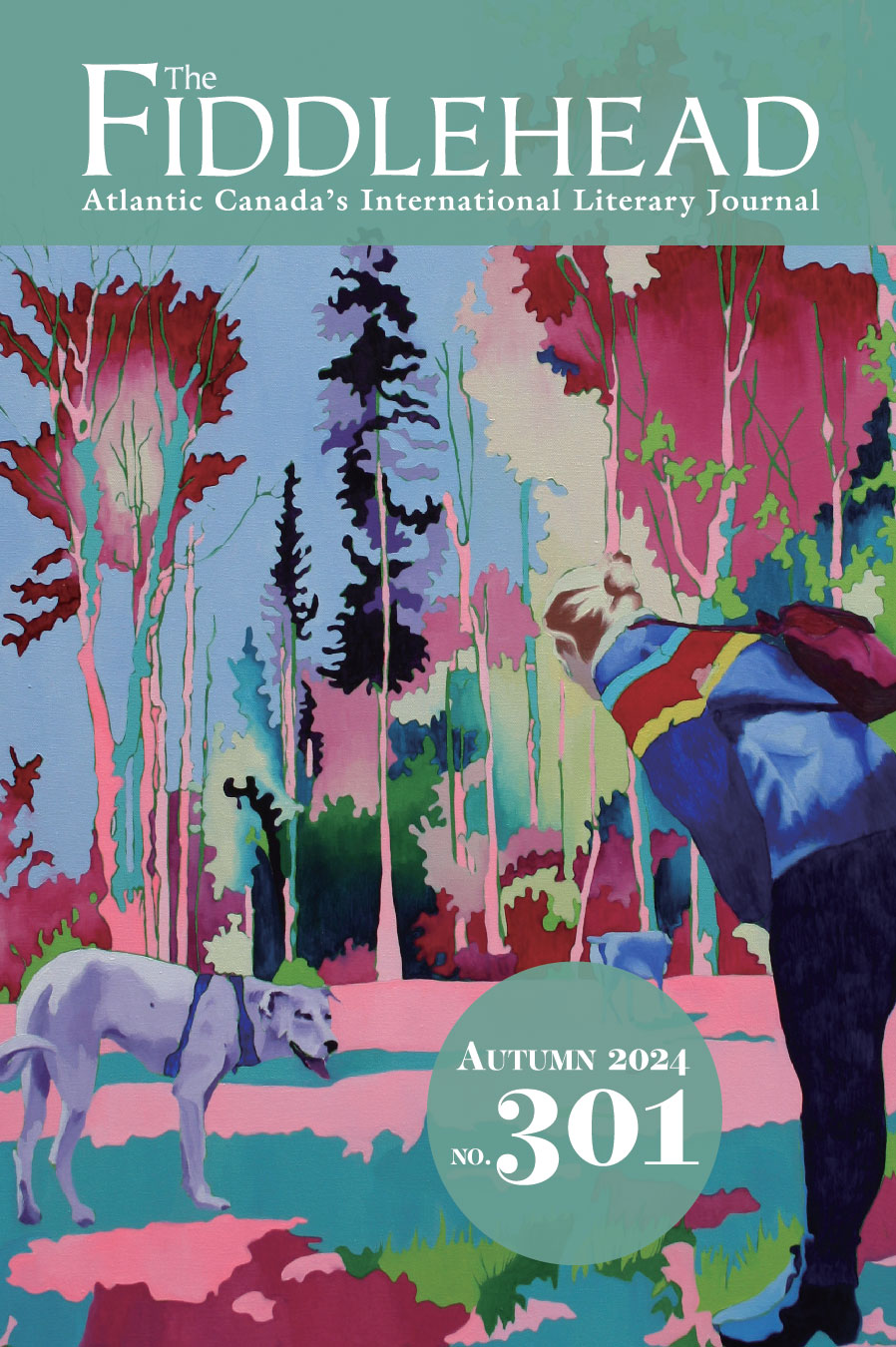
A poet glimpses his soul and mortality: ‘Please return my life of tender purpose to its memory’
In The Capital City of Autumn, Tim Bowling. Wolsak and Wynn, 2024.
With a pressing sense of his own mortality, Tim Bowling, in his poetry collection In The Capital City of Autumn writes about time and its passing. Moments of self-reflection and self-irony surface with poignancy and, at times, humour. As in The Thin Smoke of the Heart, Tenderman, Fathom, and earlier collections I have come to love, there is a musicality to Bowling’s verse during its most lyrical moments, along with a colloquial ease and impetus driven by the notable images that anchor the poems.
In “Sweet Sixteen,” the speaker meditates on a “papier-mâché face and head” of a “three-toed sloth” that belonged to his daughter and “finally worked its way / to the discard bin / of adolescence.” In a moment of self-reflection, the speaker remarks on the sloth mascot, while he finds that he too shares its lethargy, “too bone- / weary to get up” from his “easy / chair” and to “start the chores / of the next phase of life.”
Against the image of “marked heights . . . on the door jamb,” we are reminded of the passage of time while the aging speaker identifies with the sloth: “I feel the head and face / of who I was,” and on hearing his daughter’s nostalgic “I’m almost sad to see him go,” he feels perhaps a more acerbic version of that same loss from the perspective of his middle years.
In a lyrical vein, “Cherry Blossoms” employs a longer rhythmic line that remains colloquial in its tenor. Again, in contemplating a memory of cherry trees in blossom, when they were “everywhere” and the speaker, then a young man, “could be anywhere,” a remembrance of his former self among the falling cherry blossoms surfaces:
This romantically dramatized scene might appear sentimental were it not for the force of contrast with the speaker’s present state of mind. In the next line, the poet regretfully looks back at the young man he was with a sense of his own personal loss: “The man I am, more and more a memory of self.” The tableau that emerges with dream-like impression is countered by the poet wishing he could “pay and stand to watch/this parade” without the intensified emotion of “floats” and “sound” as it passes by “the stillness of the unformed life” waiting to be lived.
From the perspective of his mature experience of the world, the poet expresses his disillusionment with society and its pretentiousness, its perennial greed and envy as those human qualities too prevalent in society around him find a coda in the sequence “The Great Gatsby Poems.” Here Bowling experiments with angry shorter lines that reach street vernacular, as, for example, in “Boy with Brick.” The speaker considers what word Scott Fitzgerald would have the boy chalk that Nick glimpses in moonlight outside Gatsby’s residence, whether it would be “fuck” or “cock,” or, as he later conjectures, “American,” in reference to the elusive American dream of the self-made man:
In accusing Fitzgerald of using Nick Carraway as a mouthpiece — even as Nick finds his feelings aligned with the boy who uses a “piece of brick” to scrawl “Gatsby,” the speaker in the poem draws attention to his own creation of a literary analogue to project his point of view. In the image of the pen drawn “raspingly along the stone,” I, however, sense a personal anger in the poet that goes beyond the literary and would seem to emanate from personal experience. I was amused by Bowling’s approval of the critic “Seldes” (in the poem of that title) as the one reviewer who endorsed Scott F. Fitzgerald after Ernest Hemingway “did the dirty on him,” with Bowling’s “(oh a Seldes for every author!)” (31).
A similar self-reflection pops up with irony in “Report for Middle Age,” in which the poet lists specific life skills while giving a personal grade for his own performance. I chortled at such entries as “Working with others,” which is graded with “needs improvement,” “Gross Motor Skills” that are “holding” and “Working Alone,” which “Exceeds expectations” since, of course, what else do we expect from an introspective poet? The prognosis, however, “likely to progress to old age” followed by the banal run-on, “If he does not begin to apply himself, if his attitude does not improve, it is / almost certain that he will end up dead” brings home the final irony that, of course, we will all end up in that too-often euphemized state of “passed away” (48).
A mortality theme enters the climatic and title poem, “In the Capital City of Autumn” in which the hauntingly beautiful lines “In the capital city of autumn / the moon’s an egg in the pocket of a running thief —” (63) capture a sense of lost time. Here an awareness of time’s psychological thievery underlies a desperate carpe diem theme. In the long, rhythmic lines with their intrinsic music and imagery, their largesse and meditative wandering, I am reminded of T.S. Eliot in “The Wasteland” in this verging-on-epic poem (several pages):
The poem ends on an elegiac note with two ships’ masts in the fog “like the figures of my parents.” By the word “tender” with its array of connotations going back to fisherman’s “pay” in Bowling’s The Tenderman, the closing lines, “Please return my life of tender purpose to its memory” carries multifoliate meaning.
In the closing sequence “The Old Communion,” written after his dog’s death, Bowling confronts his anger and sorrow, and seems at last to rejoin the world. In “Returning Home,” he realizes that he did not always appreciate a living in the “present” that his dog brought to him with her affection:
With “the joy shaking from her body like seawater,” “she’d splash me in a present I so often failed / to honour.” Having learned from “dog loss,” the speaker in “Election” then writes a poem with a recommendation to politicians: “Leaders could carry more dogs and / dog loss” so that they could shape “policy with that anchor/ in their arms.” Having been through that raw and painful experience, the speaker remarks that afterwards, “all the doors of the flesh-house / [are] open” and there remain “no secrets from the self.”
And on this reminder of our shared mortality, the poet urges kindness to offset the scrabble of life and society and politics. In the Capital City of Autumn is a collection of poems that speaks to our souls with a lyric at once personal and profound that is, by turns, down-to-earth and offset by irony with aperçu glimpses of self.
— gillian harding-russell is a poet, editor, and reviewer whose most recent work is the chapbook Megrim (The Alfred Gustav Press, 2021).











